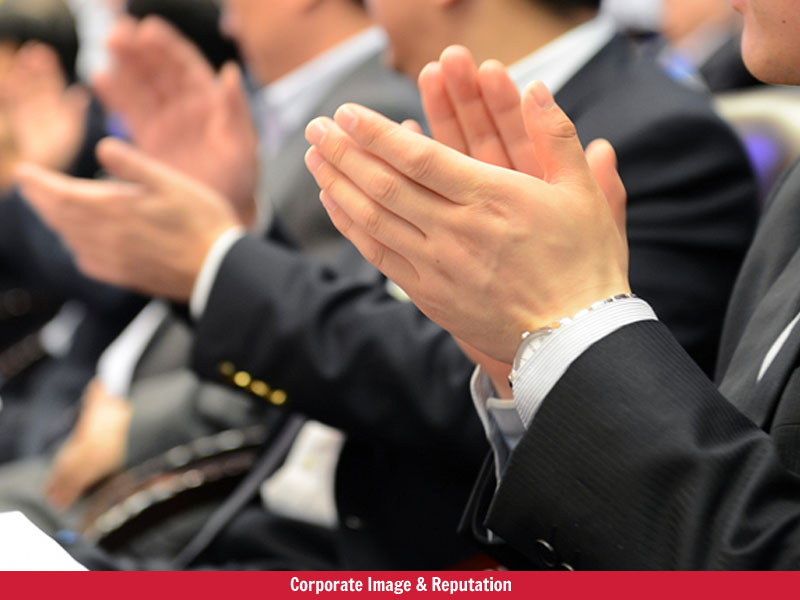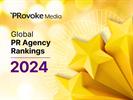Paul Holmes 17 Jan 2016 // 1:34PM GMT

The Holmes Report’s annual Trend Forecast series looks at sector trends that will impact PR. You can find them all here.
It is going to be difficult to disentangle corporate reputation challenges from the turbulent political environment in 2016. Whether it’s the Chinese currency crisis, the potential British exit from the EU, or the presidential election in the US, political events create lessons to learn and challenges to face for senior corporate communicators.
1. China
Vivian Lines, chairman of the Asia-Pacific region for Hill+Knowlton Strategies, has one major piece of advice for global corporations in 2016: “Follow the Yuan, wherever it leads.” Lines expects to see the Shanghai exchange to emerge as a competitor to Hong Kong following the designation of the yuan as a reserve currency by the IMF.
“The largest Chinese companies are growing enormously fast, are far more nimble than their western competitors at adapting to instantly changing consumer needs, and are willing to expand globally as well as at home,” says Lines. “We will also see more Chinese companies experimenting with large overseas sponsorships, particularly involving sports in this year of the Olympics.”
At the same time, China’s overseas foreign direct investment has been dwarfing other countries’—$102 billion in 2014—with major beneficiaries including Italy, Pakistan, and the UK as well as developing markets in Africa. The One Belt, One Road initiative in particular focuses on connectivity and cooperation among countries and creates exciting opportunities.
“Companies in-market will need communications to set them apart from others and directly sell-in for these contracts.” Says Lines. “They will also need to be able communicate strongly to explain their value proposition to Chinese counterparts, to their local governments and to the public who are expecting them to deliver contracts that will benefit locally.”
2. From Authenticity to Transparency
Say what you like about Donald Trump, but one characteristic he shares with Bernie Sanders—his counterpart on the left in terms of voter enthusiasm—is authenticity. That’s a quality people believe is lacking in mainstream politicians and mainstream corporations.
According to Michael Robinson, managing director at financial communications specialist ICR, “For companies to break through the enormous wall of mistrust that consumers, investors, and the full panoply of stakeholders have now put in place, there’s an opportunity to try something different: simple and direct communications.”
Rod Carttwright, director of the global corporate and public affairs practice at Ketchum, goes even further. The social media world, he says, “demands transparency, even an ‘open book’ approach to providing factual information.... Corporations that truly value their reputation must now fearlessly listen to, and engage with, all their external and internal audiences if they are to gain a full reputational license to operate.”
Robinson agrees with the need for greater transparency on social media, and adds: “don’t over-promote…. That approach rarely worked when it was done in private with the media and others, much less now that it is out in the open…. Community-based programs will continue to resonate well. In an era where results matter and budget dollars are tight, successful outreach that can be quantified and draws a short, straight line from organizations to specific stakeholders will continue to produce valuable results.”
3. Purpose
“Consumers now view a business’ social purpose as a major source of differentiation,” Cartwright says. “This is further-reaching than just adding CSR initiatives on to an existing business model—that’s so last century. Rather, it is about brands and corporations realising the scale of the opportunity—and arguably a responsibility—of being brave, taking a stand, having a voice on social issues, leading much-needed conversations or helping right wrongs.”
In this arena, he says, companies need to remember “that their most powerful ambassadors and change agents are their own people, which makes starting on the inside more important than ever in engaging with social change.”
That’s particularly true in a world where merger and acquisition activity is at an all-time high, says Ruder Finn chief executive Kathy Bloomgarden.
“During times of change, simply giving out factual information will not suffice and careful planning is necessary to rally employees around a new vision and direction as the company evolves. Emotional engagement is critical leading up to the close of the deal, ensuring companies hold on to employees and keep productivity high throughout the transition…. You must embed a new commitment to purpose and values in employees, unlocking the emotional connection that is critical to success.”
Andy Last, CEO of the UK’s salt communications, agrees. “Identifying and sharing a purpose that is integral to the way the business operates and succeeds will increasingly differentiate corporates from their competitors in 2016.”
For some time now, he says, consumer brands have recognised that “sharing their sustainability credentials in creative ways can improve brand equity.” But until now, he says, corporates have been playing catch-up. That’s beginning to change: “Organizations like B-Corps are now adapting their models to enable large complex global businesses to take part, businesses are looking to revamp their sustainability reports into thought leadership, and many are seeing the impact sharing their commitments can have on securing contracts, attracting talent and improving the bottom line.”
4. Proactively managing reputation risk
The 1,400 respondents to last year’s Aon Global Risk Management Survey included CEOs, CFOs and risk managers, and ranked damage to brand and reputation as a top concern, displacing the financial and economic risks that traditionally dominated.
“I think we will see reputational risk establish itself more prominently on boardroom agendas,” says Neil Hedges, partner at UK-based Headland Consultancy. “Chief risk officers have already started rating reputation as their top strategic risk and this will create a clear expectation on corporate communications professionals from the board and the C-Suite.”
Lines agrees, suggesting that “the power and influence of individual and collective consumer voices is going to continue to grow, not decrease.
“Companies are going to be held up to even higher standards of scrutiny than we have seen in the past year, including being held directly accountable for supply chain issues and risk management situations. Most companies believe they are prepared for consumer onslaughts online and offline. In reality their crisis preparedness is woeful and formulaic, rather than being dynamic and responsive.”
The process has to start with employee engagement, Bloomgarden says. “While the press has encouraged tighter regulations and government scrutiny, the actual battle is inside the companies, where there is a real need to reinforce commitment to quality and high standards. This effort needs to take place at every level of a company. A call to action, a communications movement of commitment to ethical standards is a vital part of companies’ internal communications.”
Simon Whitehead, managing director in the energy and industrials sector at H+K’s UK operation, adds that “one decision to get right today is how one’s business should react to one-off calendar events. This could mean the difference between a great year and one in which opportunities are missed or the business may even flounder."
The most prominent of those events is likely to be the EU Referendum. “A company’s key stakeholders will certainly remember if the company gets its association with these events wrong as they somehow touch and affect us all…. Some will have prepared their businesses but many will not yet have considered its potential impact on their reputation. Imagine if one’s CEO or senior executives say the wrong thing or are identified with the wrong team? Imagine how your employees will react if the company takes a careless position or approach? Consider the impact on the UK’s standing and how that might impact the reputation of your company in the eyes of international stakeholders?”
5. The Humble CEO
Donald Trump notwithstanding, humility is going to be a defining leadership skill in 2016.
Weber Shandwick’s The CEO Reputation Premium study has found that a company’s reputation is inextricably tied to the reputation of its chief executive: global executives attribute nearly half of a company’s reputation to the CEO’s reputation and a positive CEO reputation attracts investors (87 percent), protects companies from crisis (83 percent) and attracts and retains talent (77 percent and 70 percent respectively).
But according to Leslie Gaines-Ross, the firm’s chief reputation strategist, “What has changed is that a new type of CEO—the humble, quietly engaged chief executive—has emerged to burnish company reputation.”
Highly regarded CEOs are nearly six times more likely than less highly regarded CEOs to be described as humble (34 percent vs. 6 percent, respectively). “Humble chieftains demonstrate shared values, inclusion, collaboration, transparency, and good listening skills,” says Gaines-Ross. “They make it clear that the company, not themselves, is the focus. Such CEOs cultivate senior management and give them a voice in driving corporate reputation.”



































.jpg)






























